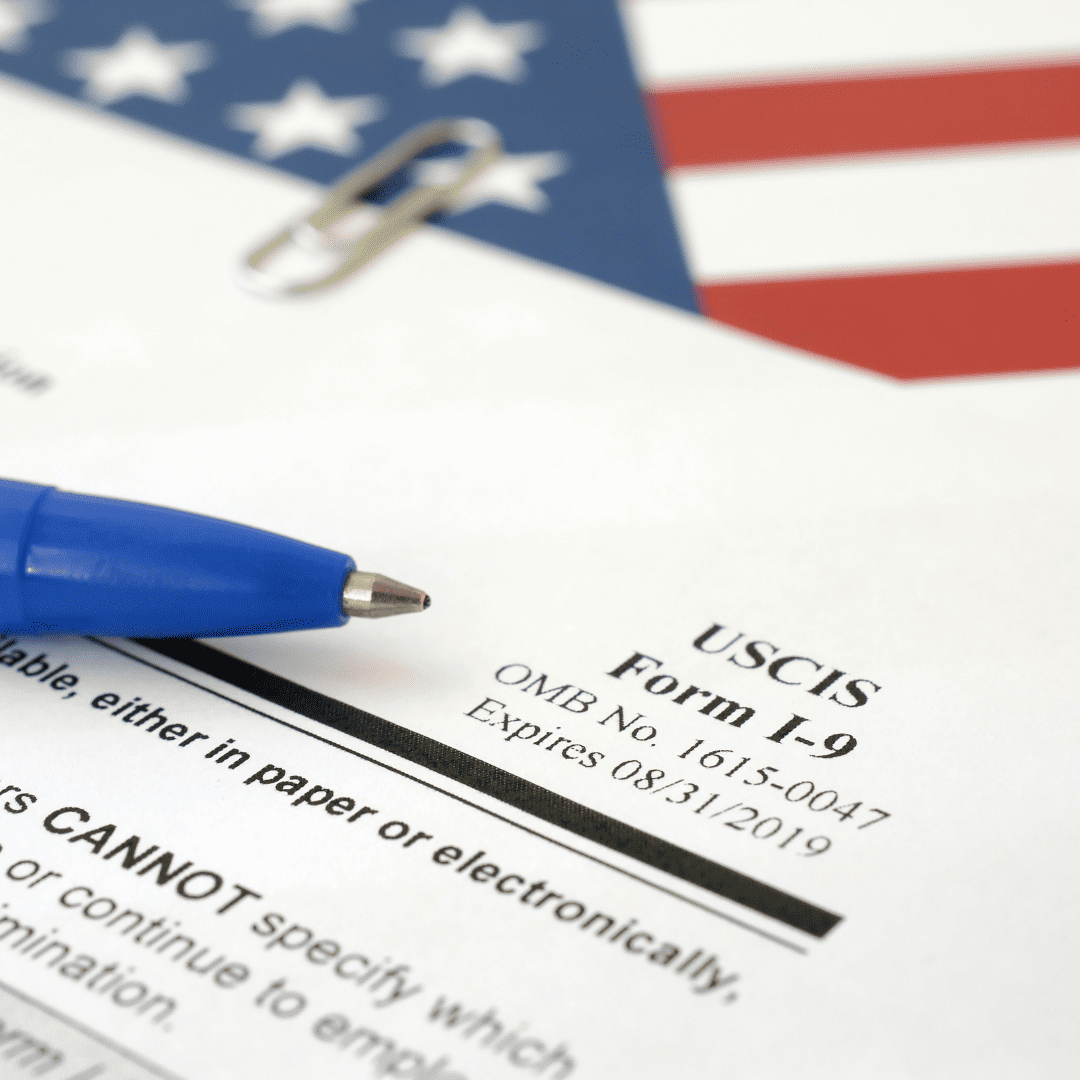
Employment & Civil Rights Blog
The O'Malley & Madden, P.C. employment and civil rights blog provides insights into key legal topics, including employment law, civil rights, and litigation. Our attorneys share updates, analysis, and practical guidance to help individuals and businesses navigate complex legal challenges.
Whether you’re seeking information on workplace rights, discrimination laws, or the appeals process, our blog offers valuable resources. Stay informed with expert perspectives on the legal issues that matter most.
2026 Workplace Transparency Act Protects Employees When Reporting Unlawful Practices
The 2026 Workplace Transparency Act amendment strengthens Illinois law by expanding protections for employees who report unlawful employment practices and engage in protected workplace activity. As of January 1, 2026, amendments to the Act clarify what employers may and may not require employees to agree to as a condition of employment, settlement, or termination. The changes reinforce long-standing public policy goals: preventing unlawful employment practices, preserving employee rights, and reducing employee retaliation when workers speak up about misconduct.
AI Employment Discrimination: Illinois Limits Artificial Intelligence in Decision-Making
As of January 1, 2026, Illinois takes a major step forward in curbing AI employment discrimination. As employers rely more heavily on artificial intelligence to make decisions affecting workers, this has become an increasingly important legal issue.
Nursing Mothers in the Workplace Act Expands Employment Protections
Illinois’ Nursing Mothers in the Workplace Act provides essential protections for nursing parents, enabling them to remain in the workforce without giving up their ability to breastfeed. Notably, the law requires many employers to provide time and space for employees to express breast milk for a nursing child during the workday.
2026 VESSA Amendment Expands Protections for Illinois Employees
The 2026 VESSA amendment represents another significant step forward in Illinois’ efforts to strengthen workplace protections for survivors of violence. Beginning January 1, 2026, employees covered by the Victims’ Economic Security and Safety Act (VESSA) will gain new rights that expand beyond existing leave and anti-retaliation provisions. The amendment ensures that employees who use employer-issued equipment to record or preserve evidence of domestic violence, sexual violence, gender violence, or other violent crimes cannot be punished for doing so.
Illinois Non-Compete Ban Tentative for January 2026
An Illinois non-compete ban is on the table for an effective date of January 1, 2026. This marks another significant step forward for employee rights and workplace fairness. The change expands existing restrictions on non-compete and non-solicitation agreements, reinforcing the state’s commitment to protecting workers’ freedom to pursue new opportunities.
Voting Rights Act: Supreme Court Hears Louisiana Case
The Voting Rights Act sits at the center of a closely watched Supreme Court case that tests the limits of how far states may go when race and redistricting intersect. At issue is Louisiana’s congressional map and whether creating a second majority-Black district is a lawful remedy for vote dilution or an unconstitutional use of race.
Illinois Workplace Transparency Act: 2026 Updates Expand Employee Rights
The Illinois Workplace Transparency Act (WTA) has long served as a cornerstone of employee protection in Illinois, designed to ensure fair treatment and accountability in the workplace. Originally enacted in 2020 following the #MeToo movement, the WTA set limits on confidentiality agreements and employment contracts that could silence employees or conceal unlawful conduct.
CDC Remote Work: Government Agency Violates Reasonable Disability Accommodations
In recent weeks, the Centers for Disease Control and Prevention’s (CDC) remote work policy drew national attention for attempting to roll back remote work arrangements for employees with disabilities. The controversy over the move highlights not only the agency’s internal challenges but also broader questions about reasonable accommodations, disability accommodations, and the rights of federal employees under U.S. law.
Operation Midway Blitz: How Chicago ICE Raids Impact Civil Rights
In September 2025, the Trump administration launched Operation Midway Blitz, a large-scale immigration enforcement operation across the Chicago area. Framed by federal officials as a crackdown on “the worst of the worst,” the raids have sparked fear in immigrant communities, ignited widespread protests, and raised profound questions about civil rights and the limits of federal enforcement authority.
2025 Chicago Paid Leave: Payout & Private Cause of Action
As of July 1st, the 2025 Chicago paid leave rules underwent significant changes to payout and private cause of action. Under the updated ordinance, any employee who works more than 80 hours within a 120-day period for an employer with at least one employee in Chicago is now eligible for both general paid leave and paid sick and safe leave. This includes remote workers whose work is performed within Chicago’s geographic boundaries.
Chicago Fair Workweek Ordinance: Are You Covered in 2025?
The Chicago Fair Workweek Ordinance continues to expand in 2025, providing more workers with predictable scheduling rights, compensation protections, and legal tools to assert control over their work schedules. As of July 1, 2025, updated income thresholds mean that even more Chicagoans in specific industries are covered under the law. Whether you’re new to the workforce or a long-time hourly employee, it’s essential to understand if this ordinance applies to you and what your employer must do to stay compliant.
Chicago Minimum Wage Increases in July 2025 for Employees
As of July 1, 2025, the Chicago minimum wage has increased again, giving workers across the city a boost in earnings. Whether you work full-time, part-time, in a restaurant, or as a domestic worker, it is essential to understand how much you are legally entitled to earn and how to ensure your paycheck reflects that amount.
DOJ Challenges Illinois E-Verify Law: What Workers Should Know
The DOJ challenges Illinois’ E-Verify law in a case that could reshape how states protect workers’ rights in employment verification processes. In May 2025, the U.S. Department of Justice filed suit against the State of Illinois over its amended Right to Privacy in the Workplace Act—specifically, Public Act 103-0879, which added new E-Verify notification requirements for employers.
Illinois Pay Stub Law Expands Worker Rights in 2025
The 2025 Illinois Pay Stub Law expands employee transparency and wage accountability statewide. Beginning January 1, 2025, Illinois employers are required to provide itemized pay stubs each pay period and retain copies for at least three years. This mandate, established under Public Act 103-0953, amends the Illinois Wage Payment and Collection Act and gives workers greater insight into their earnings, deductions, and working hours. According to the Illinois Department of Labor, the law is designed to strengthen workplace protections by helping employees verify pay and detect potential payroll issues.
2025 Illinois Minimum Wage: Key Changes Employers Must Know
The 2025 Illinois minimum wage increase represents the final step in a statewide plan to improve worker compensation. Beginning January 1, 2025, the minimum wage in Illinois is $15.00 per hour for workers aged 18 and older. This adjustment completes a phased approach that began in 2019 when the minimum wage was $8.25, aiming to increase earnings for low-wage workers across the state gradually.
Illinois Child Labor Law: 2025 Rules for Hiring Minors
Illinois Child Labor Law protections have been modernized under the Child Labor Law of 2024, enacted through Senate Bill 3646 and codified as Public Act 103-0721. Effective January 1, 2025, Illinois replaced its previous child labor framework with updated standards designed to better safeguard minors in the workforce.
Personnel Records Review Act: 2025 Changes for Illinois Workers
Personnel Records Review Act protections have expanded for Illinois workers beginning January 1, 2025. Under Public Act 103-0727, employees now have greater rights to access, review, and correct their employment records. The Act serves as a critical framework ensuring transparency between employers and employees regarding the documents used to make employment decisions such as hiring, promotion, discipline, or termination decisions.
Illinois AI Hiring Law Expands Protections Against Bias in 2026
A new Illinois AI hiring law expands civil rights protections by regulating how employers use artificial intelligence in hiring and employment decisions. Effective January 1, 2026, Illinois House Bill 3773—now Public Act 103-0804—amends the Illinois Human Rights Act to address a growing concern nationwide: discriminatory outcomes caused by automated decision-making systems.
Illinois Family Responsibility Protections Expand Worker Rights in 2025
Illinois family responsibility protections now safeguard employees who care for loved ones from discrimination in the workplace. As of January 1, 2025, “family responsibilities” is a protected category under the Illinois Human Rights Act, ensuring workers are judged by their job performance—not their caregiving obligations.
Right to Privacy in the Workplace Act: Understanding E-Verify Protections in 2025
The Right to Privacy in the Workplace Act has long served as a safeguard for Illinois workers, ensuring their employment rights are protected. With new amendments under Public Act 103-879 taking effect on January 1, 2025, employees and employers alike must understand how these changes impact workplace practices, particularly concerning the E-Verify system.




















